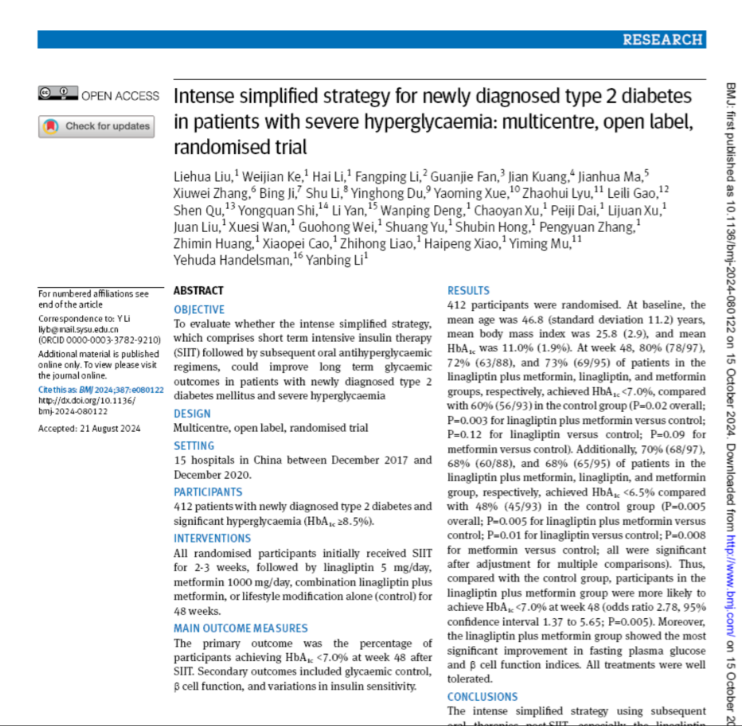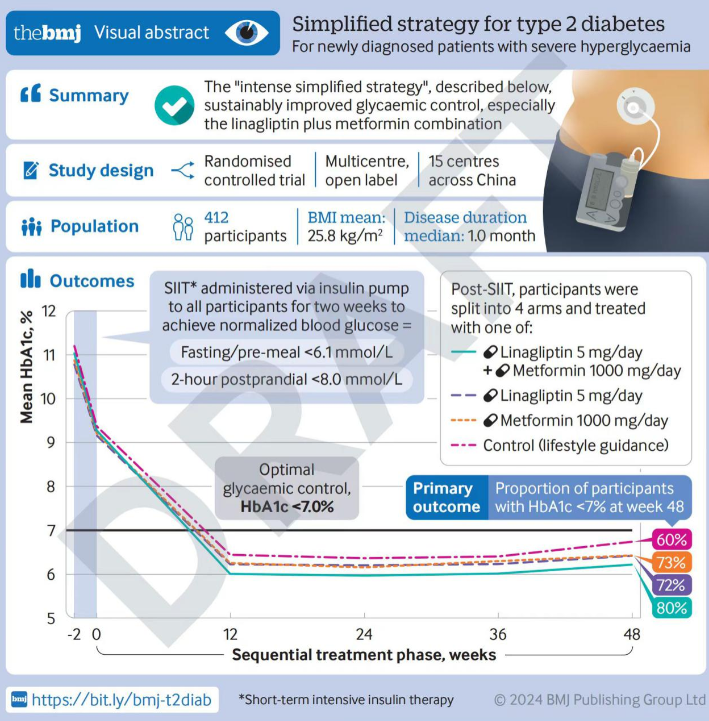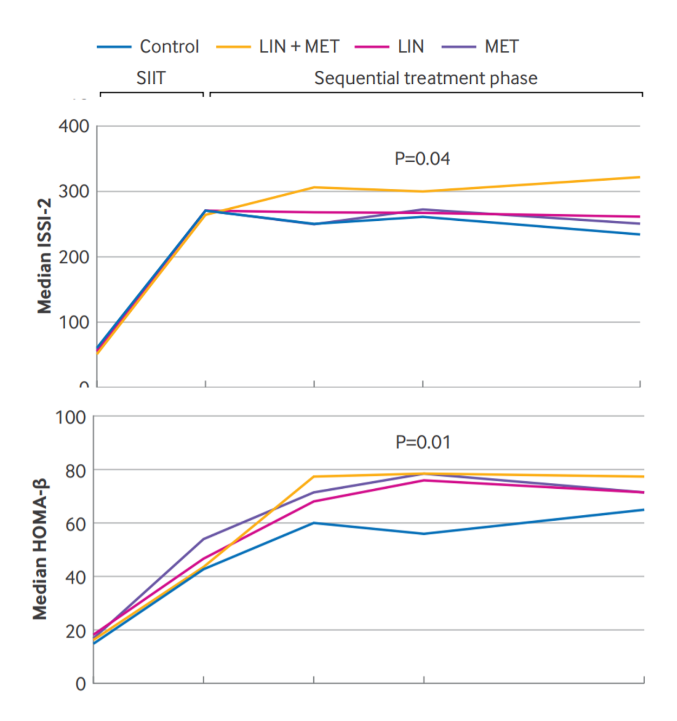【GD TODAY】Guangdong medical team's "intensive-simplified" diabetes treatment strategy published in The BMJ
A nationwide multicenter, randomized controlled study has confirmed that after intensive insulin therapy, adopting a simplified oral hypoglycemic drug regimen for sequential treatment can maintain treatment benefits and achieve the goal of optimizing long-term blood glucose control. This diagnostic and treatment approach is known as the "intensive-simplified" new treatment strategy, according to an announcement released by the First Affiliated Hospital of Sun Yat-sen University recently (FAH-SYSU).
The research findings were published on October 15th in the international top medical journal "The BMJ (British Medical Journal)". Professor Li Yanbing from the Department of Endocrinology of FAH-SYSU, served as the corresponding author, while Associate Chief Physician Liu Liehua, Attending Physician Ke Weijian, and Associate Chief Physician Li Hai from the same hospital were the first authors.

Traditionally, diabetes treatment protocols follow a stepup approach, involving increasingly complex hypoglycemic medications to address progressive blood glucose elevations and disease progression. However, long-term outcomes have been unsatisfactory, and it is difficult to avoid long-term chronic complications.
Professor Li Yanbing's team has been focusing on diabetes reversal management for many years and has found that short-term intensive insulin therapy can rapidly eliminate the toxic effects of hyperglycemia, improve islet β-cell function and insulin sensitivity, and induce diabetes remission. However, if not managed properly, these benefits often gradually weaken over time. Moreover, many patients present with severe hyperglycemia at diagnosis, posing greater challenges for their long-term health management.

In light of this, the research team designed the new "intensive-simplified" strategy, which involves adopting a simplified oral hypoglycemic drug regimen for sequential treatment after intensive insulin therapy to maintain treatment benefits and optimize long-term blood glucose control.
A total of 412 newly diagnosed patients with type 2 diabetes were enrolled in the study. All subjects first underwent short-term intensive insulin therapy for two weeks to normalize blood glucose levels and eliminate hyperglycemic toxicity. Subsequently, subjects were randomized into four treatment groups.

The results showed that the combination regimen of linagliptin and metformin demonstrated outstanding advantages, and the two monotherapy sequential intervention groups also achieved good glycemic outcomes. Meanwhile, the simplified oral medication regimen was well tolerated, with less than 5% of subjects quitting treatment due to adverse reactions.
This regimen involves fully reversing hyperglycemia through intensive management and then maintaining it with a simple and easy-to-administer oral medication regimen to achieve long-term optimized blood glucose control. The subsequent simplified management avoids multidrug combination therapy or even injectable treatments, not only yielding good treatment effects but also significantly improving patient compliance and helping to reduce medical expenses.
文/记者 Abby
报道链接:https://gdtoday.newsgd.com/post/?k=72e02e0d75
报道时间:2024-10-21





